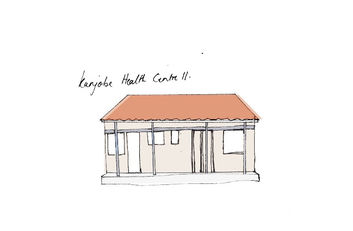
Happy Birth Day
RSA Competition, 2017
A kit-of-parts that aims to provide pregnant women in emerging markets with an individual space to give birth and receive treatment in. Community values are strong in remote Ugandan villages, however, the current cramped and demoralising conditions in many existing health centres create a traumatic atmosphere for already vulnerable women. Therefore, the Privacy Adaptive Spatial Divider allows each expectant mother the use of an individual space with the freedom of altered levels of privacy due to its removable panels. The Privacy Adaptive Spatial Divider supports health centre start-ups in remote regions so that parents can get the support before, during and after pregnancy without having to travel long distances for medication.
THE KIT

HANDMADE WEAVE


The Adaptive Spatial Divider allows women in the UK to join their local antenatal group to learn the traditional weaving techniques of the women they could be helping. By paying a small fee to be involved, money is raised for each Adaptive Spatial Divider Kit whilst each expectant mother in the UK can complete each Kit with their own unique weave made in the process. Each product can be configured in any existing building in Uganda to create individual birthing rooms for pregnant women, providing privacy and security in their moments of vulnerability as a mother. Whilst each unique embedded weave offers a reminder of another mother’s support.
About


Kanjobe Village, Uganda
In 2014 I visited the small Ugandan village in the Western district of Kabale on an expedition. The aim at that time was to alleviate impoverished living conditions for families, with an emphasis on creating solutions and setting up ways of keeping children in education for longer. The RSA brief that I chose to tackle was an opportunity for me to revisit the community I came to admire in Western Uganda and was able to look at frugal design solutions to improve life for the many women and families. Without a source of running water or electricity, there is little development and therefore restrictions on what facilities there are for pregnant women. The remote community in Kanjobe is located 10 miles away from the nearest hospital in Kabale, which serves a total population of 2 million from four other districts and neighbouring countries Rwanda and the Democratic Republic of Congo with only 280 beds. Kanjobe Health Centre II was a charity funded startup and is located in the village to treat minor illnesses and childbirth for some women, however, this is an open space treating all types of people from the village and therefore an uncomfortable environment for women to give birth in.

